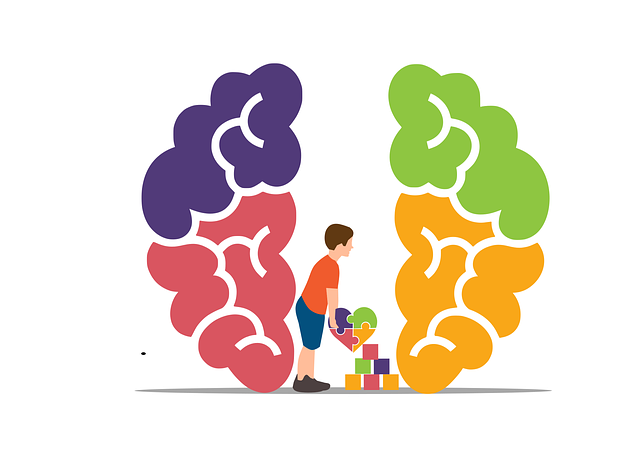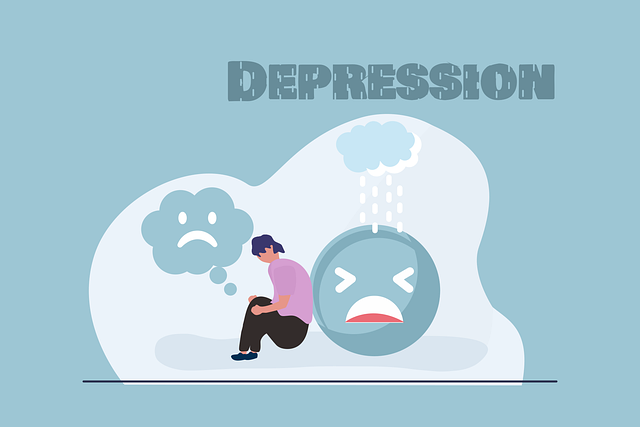Broomfield Chronic Illness Therapy advocates for responsible media portrayal of mental health, aiming to reduce stigma and promote understanding. They propose authentic narratives featuring diverse recovery journeys, involving individuals with lived experiences, and highlighting effective coping strategies. By integrating real-life stories and tailored education programs for media professionals, they strive to create a supportive environment where everyone affected by mental illness feels valued and understood.
Mental illness representation in media significantly influences public understanding and awareness. This article explores strategies to challenge negative stereotypes, focusing on the role of Broomfield Chronic Illness Therapy as a model for accurate depiction. We delve into the impact of media portrayal on mental health stigma and offer solutions to enhance positive representations. By encouraging responsible media coverage, we can foster a more compassionate society. Through case studies and expert insights, this guide highlights essential steps towards improving mental illness representation, offering hope for better public perception.
- Understanding the Impact of Media Portrayal on Mental Health Awareness
- Broomfield Chronic Illness Therapy: A Case for Accurate Representation
- Strategies to Enhance Positive Mental Health Depictions in Media
- Fostering Change: Encouraging Responsible Media Portrayal of Mental Illnesses
Understanding the Impact of Media Portrayal on Mental Health Awareness

The media plays a pivotal role in shaping societal perceptions about mental illness, significantly influencing public understanding and awareness. Portrayals in films, television shows, and news coverage can either perpetuate stereotypes or challenge them, thereby affecting how individuals with mental health conditions are treated. Positive representations that showcase diverse experiences of mental illness can foster empathy, reduce stigma, and encourage those struggling to seek help. Conversely, negative or inaccurate depictions may lead to further marginalization and hinder progress in mental health discourse.
At Broomfield Chronic Illness Therapy, we recognize the power of media as both a tool for education and a catalyst for change. That’s why we advocate for the design of Mental Health Education Programs that promote accurate and nuanced portrayals. By addressing these representations, we can boost confidence among individuals dealing with mental health issues and support their journey towards emotional regulation. Ultimately, a well-informed public is key to creating a more inclusive and supportive environment for everyone affected by mental illness.
Broomfield Chronic Illness Therapy: A Case for Accurate Representation

Broomfield Chronic Illness Therapy offers a compelling case for accurate representation of mental health struggles in media. In addressing conditions like anxiety and other chronic mental illnesses, this approach prioritizes nuanced storytelling that reflects the lived experiences of individuals grappling with these challenges. By portraying mental illness authentically, Broomfield Chronic Illness Therapy contributes to heightened Mental Health Awareness, fostering empathy and understanding within audiences.
Accurate representation is crucial for promoting Anxiety Relief and nurturing Mental Wellness. It challenges stigmatizing stereotypes often associated with mental health issues, creating a safer space for affected individuals to find validation and support. Through its commitment to ethical and responsible depiction of these conditions, Broomfield Chronic Illness Therapy sets a benchmark for media representation that could potentially revolutionize how society views and interacts with mental illness.
Strategies to Enhance Positive Mental Health Depictions in Media

To enhance positive mental health depictions in media, creators can adopt several strategic approaches. One key method is to involve individuals with lived experiences of mental illness in the development process. This ensures authenticity and promotes diverse representations that challenge stereotypes. Additionally, incorporating realistic portrayals of recovery journeys, including setbacks and relapses, can foster understanding and empathy among audiences. By showcasing a spectrum of experiences, from mild to severe, media can help reduce stigma and encourage early intervention.
Another effective strategy is to highlight coping skills development and stress reduction methods. This can include scenes featuring exercise, mindfulness practices, therapy sessions, or social support networks. Incorporating these elements subtly yet effectively can send powerful messages about the availability of resources and the importance of seeking help. Furthermore, integrating conflict resolution techniques into storylines can model healthy ways of dealing with challenges, providing viewers with valuable insights into managing stress and improving mental well-being.
Fostering Change: Encouraging Responsible Media Portrayal of Mental Illnesses

Media has a significant influence on shaping public perception, and its representation of mental illnesses can either perpetuate stereotypes or foster understanding. Encouraging responsible media portrayal is crucial in challenging stigmatization and promoting empathy. By implementing effective communication strategies, media outlets can educate viewers about various mental health conditions, their symptoms, and available treatments. This shift requires collaboration between media professionals, mental health experts, and advocates to ensure accurate and sensitive storytelling.
Broomfield Chronic Illness Therapy suggests that integrating real-life experiences of individuals living with mental illnesses into media content can be a powerful tool for change. Design and implementation of Mental Health Education Programs tailored for media professionals can enhance their understanding of the complexities surrounding mental health issues. Additionally, Community Outreach Program initiatives could engage diverse communities in conversations about mental wellness, fostering open dialogue and challenging outdated narratives. These collaborative efforts are essential to creating a more inclusive and supportive environment, where media representation serves as a catalyst for positive mental health discourse.
In conclusion, accurate and responsible media representation of mental illness is a powerful tool for fostering understanding and reducing stigma. By implementing strategies that promote positive depictions, such as those advocated by Broomfield Chronic Illness Therapy, we can significantly impact public perceptions and improve mental health awareness. Encouraging ethical media portrayal is essential to creating a more inclusive and supportive society, where individuals with mental illnesses are represented authentically and with empathy.












